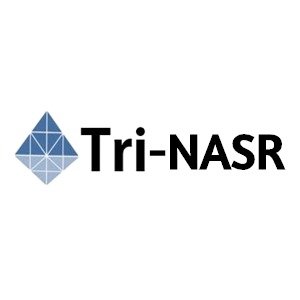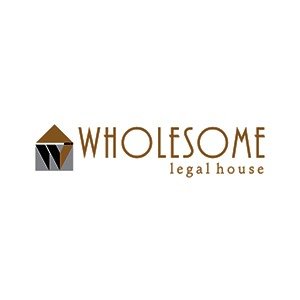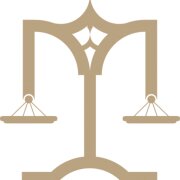Best International Trade Law Lawyers in Kano
Share your needs with us, get contacted by law firms.
Free. Takes 2 min.
List of the best lawyers in Kano, Nigeria
About International Trade Law in Kano, Nigeria
International Trade Law in Kano, Nigeria, encompasses the legal principles, norms, and regulations governing the exchange of goods, services, and capital across national borders. As a significant commercial hub in Northern Nigeria, Kano plays a crucial role in the country’s economy by acting as a central point for trade activities, particularly in agriculture, textiles, and manufactured goods. Given its strategic position, understanding international trade law is essential for businesses and individuals involved in cross-border trade to ensure compliance with Nigerian and international regulations.
Why You May Need a Lawyer
Individuals and businesses may require legal assistance in International Trade Law for several reasons:
- To navigate complex import and export regulations and ensure compliance with local and international laws.
- To resolve disputes arising from international commercial transactions, including breach of contract issues and arbitration.
- To obtain advice on trade agreements, tariffs, and international sanctions that may impact business operations.
- To deal with intellectual property rights associated with imported or exported products.
- To ensure proper documentation, such as letters of credit, bills of lading, and other trade-related documents, is in place and legally sound.
Local Laws Overview
Kano, as part of Nigeria, is subject to both national and state laws affecting international trade. Key aspects include:
- Import and Export Regulations: Businesses must comply with Nigerian Customs Services regulations, which include duties, taxes, and necessary permits for goods entering and leaving the country.
- Trade Agreements: Nigeria is a member of various international trade bodies such as the World Trade Organization (WTO) and adheres to agreements like the African Continental Free Trade Area (AfCFTA).
- Dispute Resolution: The Nigerian legal system allows for various dispute resolution mechanisms, including litigation and arbitration. Kano’s legal infrastructure supports these processes, with several institutions offering arbitration services.
- Intellectual Property Rights: Protection under Nigerian law includes trademarks, patents, and copyrights, crucial for businesses involved in trade.
- Standards and Quality Control: The Standards Organisation of Nigeria (SON) and the Nigerian Export Promotion Council (NEPC) oversee the quality and standardization of goods for international trade.
Frequently Asked Questions
1. What is the first step in starting an import/export business in Kano?
The first step is to register your business with the Corporate Affairs Commission (CAC) and obtain the necessary import/export licenses from the Nigerian Export Promotion Council (NEPC) and Nigerian Customs Services.
2. How do tariffs affect international trade in Kano?
Tariffs are taxes imposed on imported goods and can influence pricing, competitiveness, and profitability. Understanding the applicable tariffs helps businesses plan their pricing strategies effectively.
3. What documents are required for exporting goods?
Key documents include the commercial invoice, bill of lading, export license, certificate of origin, and any additional permits specific to the products being exported.
4. How can I resolve a trade dispute with a foreign partner?
Consider Alternative Dispute Resolution (ADR) methods like arbitration or mediation, which are often faster and less costly than litigation.
5. What role does the Central Bank of Nigeria play in international trade?
The Central Bank of Nigeria (CBN) regulates foreign exchange policies, which can impact the cost and timeline of international payments and trade transactions.
6. Are there specific laws regulating trade in agricultural products in Kano?
Yes, the National Agricultural Export Board and SON have specific regulations on quality, safety standards, and permissible agrochemicals for export products.
7. Can I trademark my product for international trade?
Yes, you can apply for trademark protection through the Trademarks, Patents, and Designs Registry under the Ministry of Industry, Trade, and Investment.
8. How are shipping terms defined in international trade?
Shipping terms are usually defined by Incoterms, which standardize the responsibilities of buyers and sellers in international transactions.
9. What taxes apply to imported goods in Nigeria?
Taxes may include customs duty, excise duty, and value-added tax (VAT), which varies based on the category of goods.
10. What is the penalty for non-compliance with international trade laws in Nigeria?
Penalties can range from fines, revocation of licenses, to confiscation of goods, depending on the nature and severity of the non-compliance.
Additional Resources
Several resources and organizations can assist those needing legal advice in International Trade Law in Kano:
- The Nigerian Export Promotion Council (NEPC) provides support for exporters and is a resource for understanding export regulations.
- The Standards Organisation of Nigeria (SON) ensures compliance with standards and offers certification for goods.
- The Nigerian Customs Services offer guidance and information on import/export procedures and tariffs.
- The Commercial Law Development Services (CLDS) can assist with legal education and professional development in trade law.
- The Kano Chamber of Commerce, Industry, Mines and Agriculture (KACCIMA) is an essential local resource for networking and trade opportunities.
Next Steps
If you require legal assistance in International Trade Law, consider the following steps:
- Identify your specific legal needs and potential issues concerning your trade activities.
- Research and consult with qualified legal professionals specializing in international trade law within Kano or Nigeria at large.
- Explore consultations with relevant trade bodies such as the NEPC or Nigerian Customs Services for initial guidance.
- Attend workshops or seminars offered by local trade organizations to gain insight into current trade policies and practices.
- Prepare all necessary documents and evidence to present a clear case to your legal advisor.
Taking proactive steps will help ensure compliance and mitigate risks associated with international trade activities in Kano, Nigeria.
Lawzana helps you find the best lawyers and law firms in Kano through a curated and pre-screened list of qualified legal professionals. Our platform offers rankings and detailed profiles of attorneys and law firms, allowing you to compare based on practice areas, including International Trade Law, experience, and client feedback.
Each profile includes a description of the firm's areas of practice, client reviews, team members and partners, year of establishment, spoken languages, office locations, contact information, social media presence, and any published articles or resources. Most firms on our platform speak English and are experienced in both local and international legal matters.
Get a quote from top-rated law firms in Kano, Nigeria — quickly, securely, and without unnecessary hassle.
Disclaimer:
The information provided on this page is for general informational purposes only and does not constitute legal advice. While we strive to ensure the accuracy and relevance of the content, legal information may change over time, and interpretations of the law can vary. You should always consult with a qualified legal professional for advice specific to your situation.
We disclaim all liability for actions taken or not taken based on the content of this page. If you believe any information is incorrect or outdated, please contact us, and we will review and update it where appropriate.

















